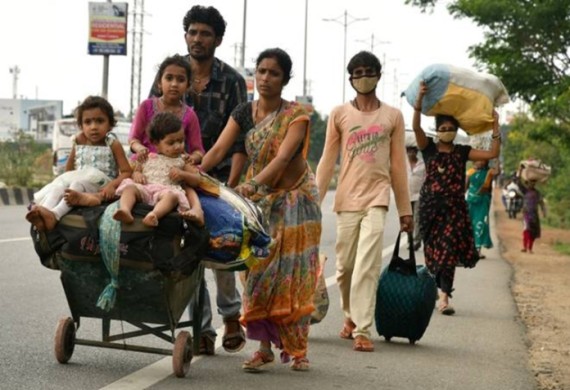
ICDS's Poshan Card ensures uninterrupted Nutrition for Children, Pregnant Women & Lactating Mothers
By: WE Staff | Tuesday, 6 July 2021
The Integrated Child Development Services (ICDS) has introduced a "poshan card" to facilitate easy transfer of services from one anganwadi to another, ensuring that children, pregnant women, and lactating mothers receive uninterrupted nutrition even as they migrate with their families for work.
Yashomati Thakur, the state's Women and Child Development (WCD) minister, stated that two cards, green and pink, have been introduced specifically for migrants to track their movements and continue with their nutrition. “When they migrate, they often go out of our radar and do not get registered with the anganwadi in another city,” she said.
According to officials, anganwadies in rural and tribal areas with a high outflow of migrants will issue a green-colored card to children, pregnant and lactating women. “This will have all details of their weight, anaemia status, (other) health problems, history of malnourishment and treatment given, and details of folic acid tablet course etc,” said Shobha Shelar, district WCD officer for Mumbai suburbs. According to Shelar, the majority of cases of migration have been observed among brick kiln and sugarcane farm workers.
When a beneficiary arrives in a city, the local anganwadi worker will fill out a pink card with information about how to continue receiving services. Shelar claims that the poshan card eliminates the need for the beneficiary to re-register at the anganwadi.
Prior to the introduction of the poshan card, children and women were expected to go to anganwadi to register for rations. With the card in hand, they can now obtain rations from whichever anganwadi is most convenient for them.
Data up to April show that 10% of the 60.64 lakh children aged less than six years who were surveyed across the state were underweight. This included 5.24 lakh underweight children and 83,909 severely underweight children. In terms of absolute numbers, Nandurbar (11,008), Nashik (8,749), and Palghar had the highest number of severely malnourished children (5,860).
WCD officials stated that they realised the children of migrant families had the highest proportion of malnourishment. “The poshan card is not only to promote institutional engagement but can also be used as a means of tracking seasonal migrant families and children in the absence of a digital tracking system,” an official from WCD ministry said. In April-end, ICDS had asked all districts to allocate funds for printing the poshan cards.


.jpg)



